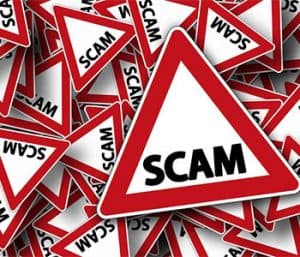Notice: Due to COVID-19, we will be conducting all consultations via Zoom and telephone. We are open and here to help people in these trying times.
Please don’t hesitate to call us if you have any questions!

We are seeing the best being brought out in people from volunteer drives supporting frontline workers to individuals delivering groceries and other goods to their elderly or immunocompromised neighbors. The federal government is rolling out loan programs, and some companies are loosening restrictions on payment terms.
Then there are the bad apples, who are seizing this opportunity to prey on people seeking financial relief. We recently highlighted some of these scams, but the floodgates have opened, and bad actors are busting out all the stops.
For example, The Federal Trade Commission (FTC) reported that Medicare scams are afoot, with people calling with bogus offers like COVID-19 kits and coronavirus packages, requesting sensitive information such as your Medicare, Social Security, and bank account numbers. People claiming to be with the Social Security Administration, IRS, Census, USCIS, and the FDI are calling, texting, and emailing with fraudulent payment and grant offers.
If scammers are attempting to steal your information, here are seven ways you can respond, with guidance from the U.S. Small Business Administration (SBA) and the U.S. Department of Treasury:
seeking money or personal financial information for COVID-19 grants or stimulus payments.
The good news is that scams are being identified and tracked almost as quickly as they are rolling out. IBM recently released a report showing a 6,000 percent increase in COVID-19-related spam emails intended to steal IRS checks. The software group, Check Point, found more than 4,000 new websites in only one week that were created to trick people into divulging financial information with the promise of receiving stimulus checks.
It’s easy to feel overwhelmed by the rapidly changing financial relief information that’s generated on a daily basis. But if something smells like a scam, it’s most likely a scam.
To put 40+ years of experience in your corner, call (847) 440-5998 or contact us online today. We can begin with a complimentary, virtual consultation. Please follow us on Facebook and LinkedIn.